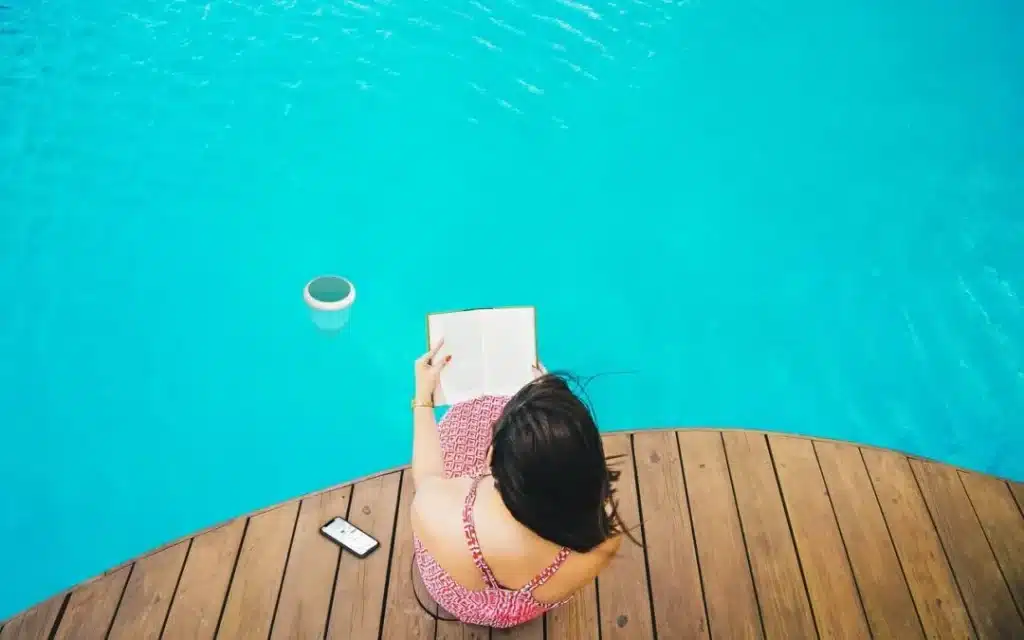Chlorine is the most common product used to treat water in swimming pools and spas. It is also the most economical treatment compared to salt and bromine. Its disinfectant property eliminates all micro-organisms in the water and it is an effective algicide. Are you unsure of what to use for your pool or spa? Read this article to find out.

Chlorine treatment offers many advantages:
Pool and spa chlorine is available in several forms:
You can find two types of chlorine in the market to treat your pool:
Unstalibized Chlorine. Il a un fort pouvoir désinfectant, mais les rayons UV peuvent fortement diminuer voir annuler son pouvoir désinfectant en quelques heures. Il est possible de le compléter avec un stabilisant. C’est un produit d’avantage utilisé par les propriétaires de spa. Read more.
Stabilized chlorine contains a stabilising agent, cyanuric acid, qui le protège des rayons UV. C’est la forme de chlore la plus utilisée pour les piscines pour son usage confortable et complet.
There are several types of chlorine: free chlorine, total chlorine and active chlorine. Not all of them are responsible or active in disinfection. That is why you have to be careful with the type of chlorine that your strips or devices measure in your pool. This can explain differences in results between different measuring solutions (strips, DPD tablets, connected probes).
| Cookie | Duration | Description |
|---|---|---|
| cookielawinfo-checkbox-analytics | 11 months | This cookie is set by GDPR Cookie Consent plugin. The cookie is used to store the user consent for the cookies in the category "Analytics". |
| cookielawinfo-checkbox-functional | 11 months | The cookie is set by GDPR cookie consent to record the user consent for the cookies in the category "Functional". |
| cookielawinfo-checkbox-necessary | 11 months | This cookie is set by GDPR Cookie Consent plugin. The cookies is used to store the user consent for the cookies in the category "Necessary". |
| cookielawinfo-checkbox-others | 11 months | This cookie is set by GDPR Cookie Consent plugin. The cookie is used to store the user consent for the cookies in the category "Other. |
| cookielawinfo-checkbox-performance | 11 months | This cookie is set by GDPR Cookie Consent plugin. The cookie is used to store the user consent for the cookies in the category "Performance". |
| viewed_cookie_policy | 11 months | The cookie is set by the GDPR Cookie Consent plugin and is used to store whether or not user has consented to the use of cookies. It does not store any personal data. |